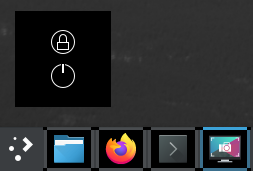this post was submitted on 25 Mar 2024
119 points (96.1% liked)
Linux
48157 readers
750 users here now
From Wikipedia, the free encyclopedia
Linux is a family of open source Unix-like operating systems based on the Linux kernel, an operating system kernel first released on September 17, 1991 by Linus Torvalds. Linux is typically packaged in a Linux distribution (or distro for short).
Distributions include the Linux kernel and supporting system software and libraries, many of which are provided by the GNU Project. Many Linux distributions use the word "Linux" in their name, but the Free Software Foundation uses the name GNU/Linux to emphasize the importance of GNU software, causing some controversy.
Rules
- Posts must be relevant to operating systems running the Linux kernel. GNU/Linux or otherwise.
- No misinformation
- No NSFW content
- No hate speech, bigotry, etc
Related Communities
Community icon by Alpár-Etele Méder, licensed under CC BY 3.0
founded 5 years ago
MODERATORS
you are viewing a single comment's thread
view the rest of the comments
view the rest of the comments

You don't need to get out of your way. You can, for example, just tar --one-file-system, clonezilla or rsync or maybe even drag and drop copy all your important file systems on a USB HD, USB stick or cloud storage that you then check and unplug/unmount.
This is very easy and can run in the background while you do some other stuff. Even if the backup isn't good and for example doesn't have proper permissions, because you drag and drop copied, it will have the info required to reinstall and restore the exact system you had at the time of the backup.